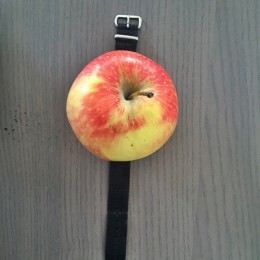WATCH What Happens. (Get It?)

Here’s a new way to address the question, “Are you rich?” Can you afford the $10,000 deluxe version of the Apple watch? Are you willing to pay for prestige?
The gap between what people are willing to pay for a product and the lower price that they actually pay is referred to in economics as consumer surplus. For Apple customers with money, Apple products tend to come with consumer surplus in spades. From a pure business perspective, that’s a lot of money Apple has been leaving on the table.
The fancy Apple Watches represent a bid to capture that surplus. “Oh,” Apple is saying to its wealthiest customers, “you’d pay $10,000 for a top-of-the-line Apple product if we asked you to? Well, now we’re asking you to.” In exchange, those customers get the chance to own an Apple product that the plebes can’t afford. They aren’t paying for a device, really. They’re paying for prestige. And, for the first time, Apple is willing to sell it to them.
Slate warns that by going this route, Apple might be selling its soul. That assumes that it retains any soul to sell. Do giant, multinational corporations have souls in the first place? Regardless, I’m not sure how a watch that is available at various price points — starting at $349, which is less than I’ve paid for a nice man’s watch in the recent past — is that different from a computer that is available at various price points. Sure, maybe it’s harder to spend five-figures on a computer, but there are still cheaper laptops and far pricier desktops. Is this range of prices for watches really so different?
People love a company when they feel that it gives them more than they paid for. They love a company that gives them the same perfect product it gives to celebrities and millionaires. They love a company when they feel ownership over its products. People, by and large, do not love a company that ropes them off from its finest offerings. People are not going to love walking into Apple Stores and seeing glass cases full of gold watches they’ll never be able to afford. And, if I’m right, shaggy young fanboys are not going to camp out for nights on end to be the first to buy the cut-rate Apple Watch Sport.
Well, we’ll see, I guess. Meanwhile, you will be relieved to learn that the Bureau of Labor Statistics is ON IT.
Apple unveiled the pricing and features of its forthcoming smartwatch Monday, and of course the number one question people are asking is: How will this affect the Consumer Price Index? Fear not, I spoke with an economist at the Bureau of Labor Statistics and she assured me the bureau is ready for the Apple Watch. …
Once Apple Watches are sold in large enough volume to show up in the Consumer Expenditure Survey, which is what the BLS bases its weights on, it will begin affecting the Consumer Price Index. However, while the prices of some consumer products such as televisions and computers are quality controlled using so-called hedonic adjustments, the iPhone isn’t, and neither will the Apple Watch.
I like that “of course” in the first line. Of course that’s everyone’s number one question!
What I’m curious about is whether Apple can make watches happen again, period. I know very few people who wear one anymore. The watch won’t replace the phone, it will merely complement it; that means you have to pay to maintain both your wearable and your in-pocket technology. Is getting to be like Dick Tracy enough added value?
Photo cleverness via Mike Dang
Support The Billfold
The Billfold continues to exist thanks to support from our readers. Help us continue to do our work by making a monthly pledge on Patreon or a one-time-only contribution through PayPal.
Comments